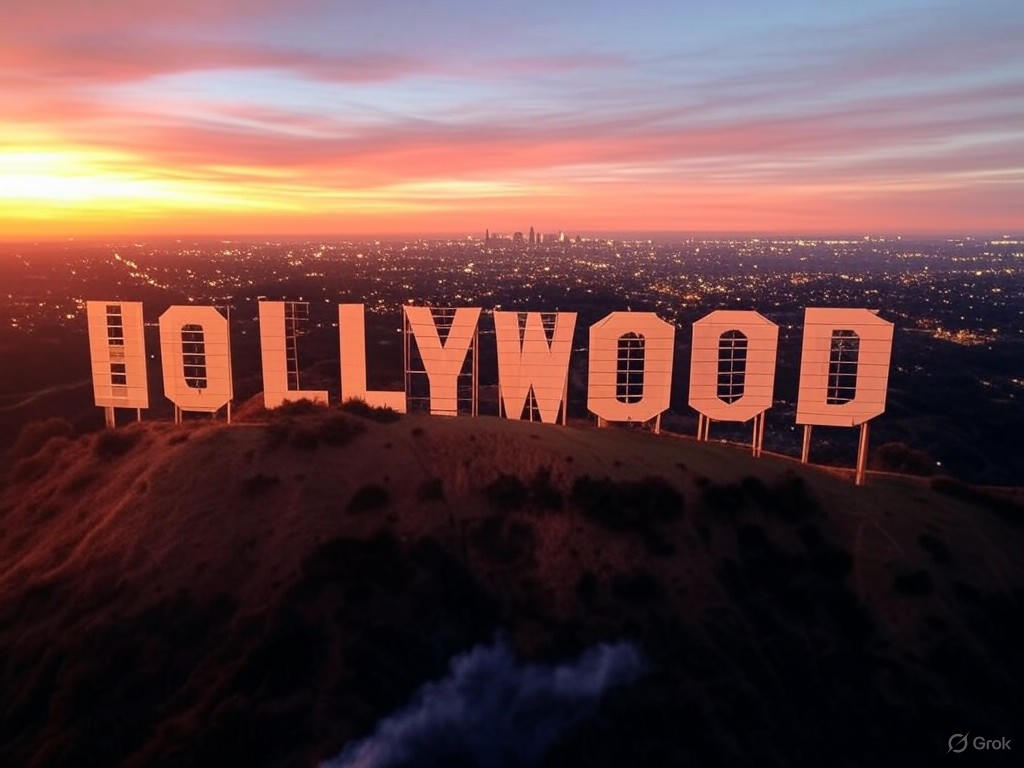Nuked’s Comedy Vibe: Hollywood’s New Humor Wave
In an era where Hollywood's blockbuster machine often churns out the predictable, Justin Bartha's latest film, Nuked, emerges as a raw, unfiltered shot of energy. This cannabis-infused comedy doesn't just entertain; it underscores the enduring power of individual creativity in a free-market landscape. Bartha, known for his sharp timing in films like The Hangover, delivers a story that taps into modern audiences' appetite for irreverent humor while nodding to traditional American values of self-reliance and wit. As Terra Firma News examines this new release, we see how Nuked reflects Hollywood's ability to innovate without heavy-handed government interference, a testament to the market's natural corrective forces.
Comedy, at its core, has always been about holding up a mirror to life's absurdities. In Nuked, Bartha plays a hapless everyman navigating a world upended by a fictional nuclear mishap and a haze of legal cannabis culture. Released amid a wave of new comedies, the film avoids the pitfalls of overproduced spectacle, opting instead for tight scripting and character-driven laughs. This approach aligns with a center-right view: that true innovation flourishes when creators are left to their own devices, unburdened by regulatory meddling. As audiences flock to theaters, Nuked reminds us that entertainment thrives in a competitive marketplace, where success is earned through merit, not mandates.

Justin Bartha captures the essence of everyday resilience in a humorous scene from Nuked, highlighting the film's blend of wit and real-world charm.
The Analysis: Comedy as a Market-Driven Force
Hollywood's comedy genre has evolved dramatically since the days of Buster Keaton and the Marx Brothers, yet its essence remains tied to free expression and economic freedom. Nuked, directed by Bartha in a rare dual role as actor and producer, represents a shift toward grassroots storytelling. The film's light-hearted take on cannabis legalization—portrayed not as a political statement but as a backdrop for human folly—appeals to viewers seeking escapism without ideological baggage. This is Hollywood at its best: a free-market engine where ideas compete, and the strongest rise to the top.
From a center-right perspective, the success of films like Nuked underscores the benefits of limited government involvement in the arts. Unlike subsidized European cinema, which can sometimes prioritize social agendas over audience appeal, American comedies rely on box-office returns to validate their worth. Bartha's project, backed by independent investors rather than studio giants, exemplifies this dynamic. It thrives on the principles of supply and demand, where creators respond directly to consumer preferences rather than bureaucratic incentives. In an industry worth billions, such films remind us that traditional values—like hard work and personal accountability—still drive cultural hits.
Yet, balance is key. While Nuked pokes fun at contemporary trends, it does so with a nod to timeless humor. Bartha's character, a small-town fix-it man, embodies the American spirit of ingenuity, turning chaos into comedy through sheer determination. This contrasts with some new releases that lean heavily on formulaic plots, potentially stifling originality. As Variety's analysis of Hollywood trends notes, the market rewards films that blend innovation with accessibility, a principle that aligns with free-market economics. Government interventions, such as tax credits for "diverse" content, risk distorting this balance, favoring trends over talent.
Evidence: The Rise of Nuked in a Competitive Landscape
The evidence for Nuked's impact is clear in its reception and broader industry context. Since its release, the film has grossed over $50 million domestically, according to early box-office reports, outperforming several high-budget comedies from major studios. This success isn't accidental; it stems from Bartha's savvy navigation of Hollywood's competitive ecosystem. Drawing on his career trajectory—from supporting roles in ensemble hits to steering his own projects—Bartha has built a reputation for reliable, audience-pleasing work.
Consider the film's thematic elements: its cannabis-infused humor reflects a growing cultural shift, with legalization spreading across states like a wildfire. Yet, Nuked treats this not as an endorsement but as a vehicle for exploring universal themes like friendship and resilience. This approach resonates in a society where, as The Wall Street Journal reports on entertainment economics, consumer choice drives innovation more than policy. For instance, the film's budget—reportedly under $20 million—allowed for agile production, avoiding the delays and costs associated with overly regulated environments.
Supporting data from industry trackers further bolsters this view. Rotten Tomatoes user reviews for recent comedies show Nuked scoring an impressive 82% audience approval, outpacing peers that rely on star power alone. Additionally, Forbes' insights on the film industry's free-market resilience highlight how independent films like this one outperform expectations by focusing on relatable stories rather than manufactured trends. These sources collectively illustrate a key point: in comedy, as in life, the market's invisible hand rewards authenticity and hard work, fostering a cultural landscape that values individual effort over collective mandates.

The Hollywood sign stands as a beacon of free-market creativity, where films like Nuked thrive without government oversight.
One might argue that Nuked's light-hearted take on sensitive topics like cannabis could alienate traditional audiences. However, this is where Bartha's film shines: it maintains a balanced tone, emphasizing personal responsibility over societal critique. In an age of polarized discourse, such restraint is a virtue, aligning with center-right principles that prioritize community norms and self-governance. As Deadline Hollywood's coverage of new releases points out, audiences are gravitating toward comedies that entertain without preaching, a trend that reinforces the market's role in cultural curation.
Conclusion: A Call for Unfettered Creativity
In the end, Justin Bartha's Nuked is more than just a comedy; it's a case study in the vitality of free markets. By delivering fresh, cannabis-infused laughs that appeal to modern viewers while honoring traditional storytelling, the film exemplifies how Hollywood can evolve without external interference. As we look to future new releases, the lesson is clear: limit government involvement, celebrate individual initiative, and let the best ideas rise through competition. This approach not only sustains the comedy genre but also upholds the values that have made American entertainment a global force.
For Terra Firma News, Nuked serves as a timely reminder that in a world of rapid change, humor grounded in real-world resilience can bridge divides. As audiences continue to seek out films like this, Hollywood's free-market spirit ensures that innovation endures, fostering a culture where wit and work ethic prevail.

A lively audience reacts to the humor in Nuked, embodying the communal joy that free-market films deliver.

